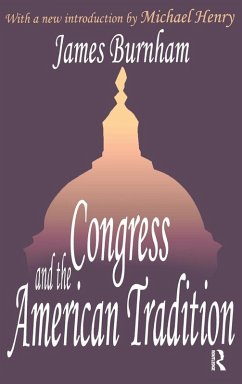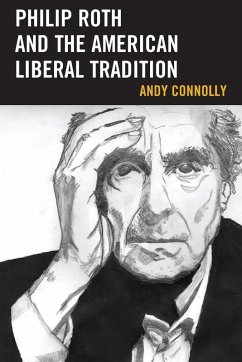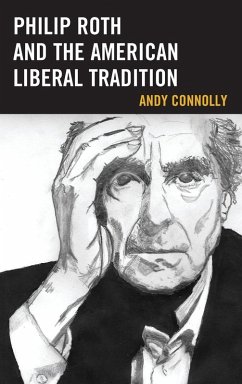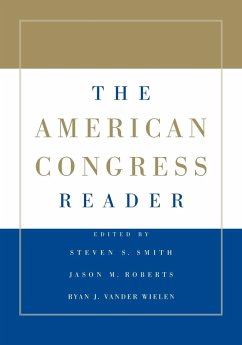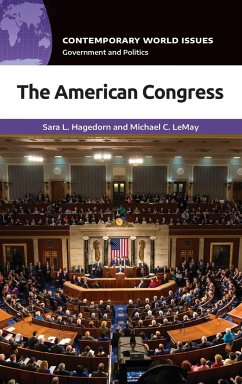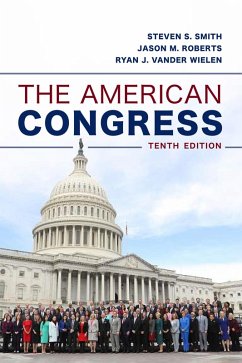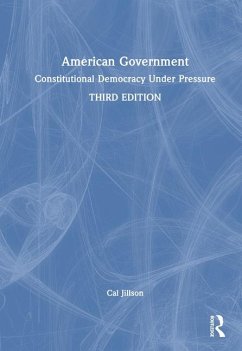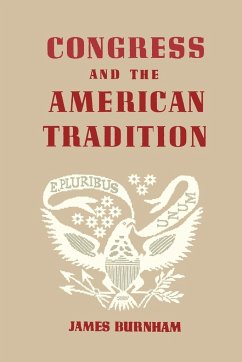
Congress and the American Tradition
Versandkostenfrei!
Versandfertig in 1-2 Wochen
22,99 €
inkl. MwSt.
Weitere Ausgaben:

PAYBACK Punkte
11 °P sammeln!
2011 Reprint of 1959 Edition. Full facsimile of the original edition, not reproduced with Optical Recognition Software. The central place of Congress in the American political tradition, the decline of its power and prestige during the 20th century, and the possibilities of restoring its influence constitute the themes of this classic work on American politics. Burnham believes that if congress would cease to be an actively functioning political institution, then political liberty in the United States would come to an end. Burnham is best know as the author of "The Managerial Revolution".




